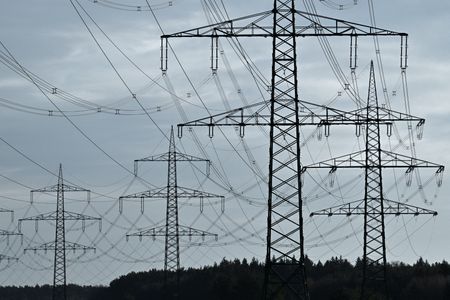BERLIN (Reuters) -Germany plans to cut energy costs for consumers and businesses by 42 billion euros ($48.69 billion) between 2026 and 2029 by drawing on its Climate and Transformation Fund, a draft of the 2026 federal budget obtained by Reuters showed.
Around 26 billion euros of this will be allocated as subsidies for electricity transmission network costs, according to the draft that the cabinet is expected to adopt on Wednesday.
Electricity prices in Germany are among the highest in the world, ranking fifth globally in the first quarter of the year with an average of 38 euro cents per kilowatt-hour.
The new government of Chancellor Friedrich Merz has said it plans to cut electricity tax for selected sectors.
According to the draft budget, 3 billion euros will provide relief for energy-intensive companies next year while 6.5 billion euros will subsidise grid fees.
“Based on EU state aid regulations, the introduction of an industrial electricity price is being considered,” the draft budget reads.
The European Union announced new state aid rules last month allowing heavy industries to receive temporary electricity price relief, following criticism from companies over high energy costs and burdensome green rules.
($1 = 0.8625 euros)
(Reporting by Holger Hansen; Writing by Sarah Marsh; editing by Barbara Lewis)







